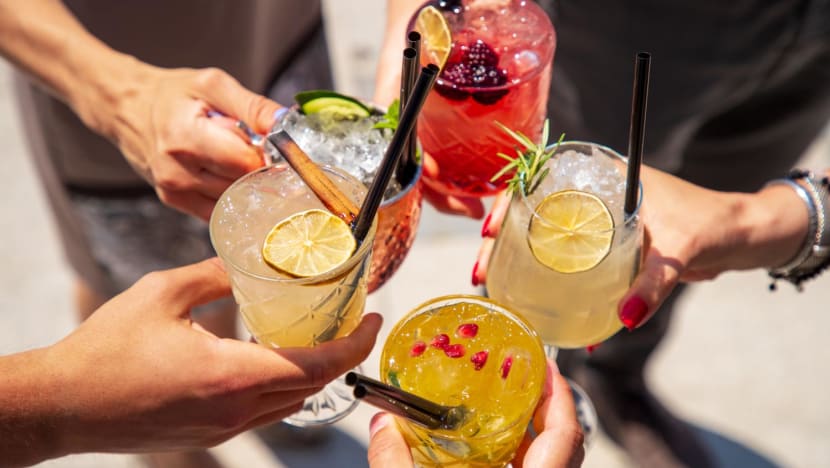Hold the booze: The bubbling business of non-alcoholic drinks
More customers are willing to pay top dollar for drinks, sans the booze. Money Mind looks at the beverage trend that is showing no sign of drying up.

Non-alcoholic and low-alcohol drinks are shaking up the global beverage industry amid the growing wellness movement around the world. (Photo: iStock)
SINGAPORE: Non-alcoholic and low-alcohol drinks are shaking up the global beverage industry amid the growing wellness movement around the world.
Along with this, more customers are willing to pay top dollar for beverages that do not have booze in them.
According to NielsenIQ, the market for no- and low-alcohol wines, beers and spirits was worth US$3.1 billion last year.
Sales of low alcohol wines, beers and spirits rose by 8.1 per cent, with non-alcoholic versions doing even better, rising by 33.2 per cent.
This is a trend observed by Mr Benedict Poh, bar manager at modern Indian restaurant Firangi Superstar.
Mr Poh estimates that about 15 per cent of customers opt for zero-proof or low-ABV (alcohol by volume) cocktails – a percentage that has been increasing throughout the years.
Industry insiders and market watchers said that the preference for non-alcoholic or low-alcohol drinks has risen as people become more health conscious. Restrictions during the height of the COVID-19 pandemic also played a part.
“We are seeing this across all demographics in Singapore. People are being more health conscious as a whole. Although they drink alcohol, they're still conscious of the health impacts of drinking too much alcohol so they switch to zero or low alcohol alternatives,” said Mr Jarred Neubronner, senior analyst at Euromonitor International.
Under restrictions implemented during the pandemic, alcohol was not allowed to be sold and consumed after 10.30pm in F&B outlets. These restrictions were lifted at the end of March.
According to Mr Poh, this meant that many diners chose to start drinking earlier, and hence switched to no- or low-alcohol options, so that they could continue safely imbibing throughout the evening.
The shift in taste for non-alcoholic drinks has spurred market players to come up with new options.
Non-alcoholic aperitif Melati was launched in 2020. At S$68 a bottle for a 500ml bottle, the price is comparable or even more expensive than alcoholic spirits such as gin and vodka.
“What we've done is selected Asian botanicals ... So on the nose, you have floral, fruity, goji berries, pomegranate," said Ms Lorin Winata, founder of Melati.
But when you drink it, you taste a lot more of the Asian spices, the warmth of the raw cacao, and it has a very elegant dry bitter finish, somewhat like a red wine,” she added.
According to Wisecrack Drinks, a distributor of non-alcoholic drinks, there are reasons for this price premium.
“It’s actually a lot more work there ... You have more ingredients that go in because you have to dissolve it in water rather than an alcohol. Most of them make smaller batches so the costs for the producers are higher. Logistics are also very costly these days,” said co-founder Olivier van Hardenbroek of Wisecrack Drinks.
According to Euromonitor, the growth of the non- and low-alcohol sector will be one of the leading post-pandemic trends.
It forecasts that the total consumption of alcoholic beverages in the Asia Pacific will fall by 4.7 per cent by 2024. In contrast, the demand for non-alcoholic and low-alcohol beer is expected to rise by 18.9 per cent.
Mr Neubronner also expects more innovation when it comes to non-alcohol spirits, meaning there will be more opportunities for brands to tempt palates in new ways.
As Ms Winata puts it: “No one ever gathers over a glass of water, you’re always looking forward to a sophisticated drinking experience with more flavour, with good conversation, and the discovery of something new.”















